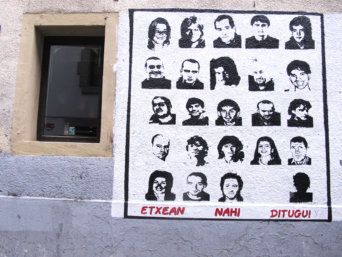- About
- Topics
- Picks
- Audio
- Story
- In-Depth
- Opinion
- News
- Donate
- Signup for our newsletterOur Editors' Best Picks.Send
Read, Debate: Engage.
Travellers who visit the Basque Country today are easily impressed by the beauty of its landscape, its dramatic geography as well as the high quality of infrastructure in Span's most prosperous region. Apart from the flags and graffiti remembering the decades-long conflict, it’s hard to imagine that the region has been the stage of one of Europe’s longest terrorist campaigns, carried out by the armed leftist Basque nationalist and separatist organisation ETA.
It was, therefore, of great relief to the Basque society when in 2011 ETA declared a definitive cease-fire. But the final act was still missing until last week’s awaited announcement of total dissolution, with the group stating that they had "completely dismantled” their structures.
Although terrorism no longer festers the concerns of the population, the way the Basques look at their blood-stained past and the debates on how to deal with the memory of terror continues to create divisions in society.
Founded during the times of dictatorship to fight the repression the Basque Country experienced under Franco’s brutal regime, the ETA's armed struggle in the name of Basque independence continued decades after democracy was restored, in 1976, killing nearly 850 people. The terrorist organisation was ultimately defeated, crushed by police forces and with dwindling popular support. Even though their decision to put an end to the group's activity has been welcomed, the ETA has been criticised for only asking for forgiveness from victims they deem innocent.
At the same time Prime Minister Mariano Rajoy has also faced criticism for refusing to negotiate with the ETA and for obstructing disarmament. More praise has been given to the former President José Luis Rodríguez Zapatero and his team for laying down the groundwork of a peace process that greatly contributed to the organisation’s decision to disband.
As the ETA officially ends its activities, a policy reversal is now expected as Spain currently insists on "dispersing" prisoners associated with the group to jails far away from the Basque Country, hindering family visits. Many also hope for a reduction in the high police numbers in the region, currently the most ‘policed’ in Western Europe. These steps are necessary to normalise politics in the region, but further policies are required that guarantee unconditional support and the right to truth that all the ETA’s victims deserve.
